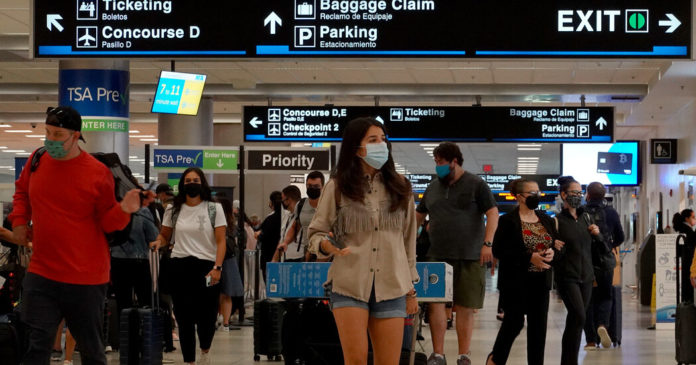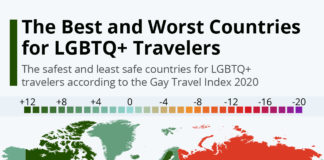
Since February, when the T.S.A. first announced that everyone — except children under 2 and people with some disabilities — is required, by law, to wear masks on airplanes and in airports in the United States, the agency has received more than 4,000 reports of mask related incidents, according to R. Carter Langston, a T.S.A. spokesman.
However, only 126 people have faced fines, he said.
Also, though one might come away from Mr. Biden’s announcement with the belief that T.S.A. officers at airports are responsible for fining noncompliant travelers, that’s generally not the case, said Becky Esquivel, a T.S.A. officer at the McCarran International Airport in Las Vegas and the vice president of the American Federation of Government Employees Local 1250, a union representing government employees at 12 airports in Arizona and Nevada. Though T.S.A. agents may ask people to put their masks on while screening their luggage at security, they do not have the ability to issue a ticket to someone who refuses on the spot. Nor do T.S.A. agents step onto airplanes, where many of the most tense mask encounters have occurred.
“We’re not the mask police,” Ms. Esquivel said.
So who are the “mask police?”
This depends on where someone is when they are not properly wearing a mask. The federal mask mandate applies not only to airports and airplanes, but also to trains, buses and other forms of public transportation.
At airport checkpoints, T.S.A. agents are supposed to remind people to wear masks, according to Mr. Langston, the agency spokesman. If those individuals flat-out refuse, the agent can deny them entry to the gate.
Typically, politely asking people to pull up their masks or cover their noses correctly does the job, Ms. Esquivel said, perhaps because it’s clear that if they break the rules at that point they are not getting anywhere near their flight.








